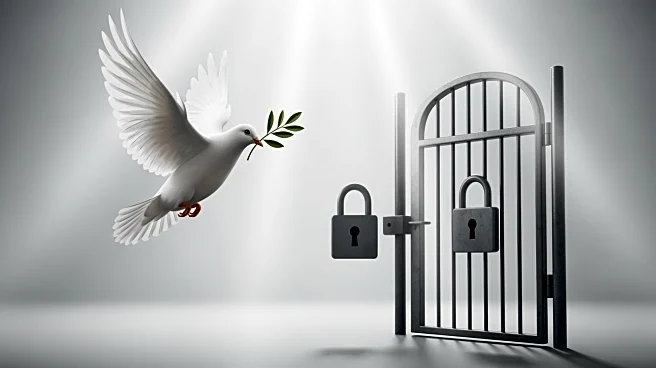What's Happening?
The International Court of Justice (ICJ) has issued an advisory opinion stating that Israel must ensure the basic needs of the civilian population in Gaza are met, including supporting relief efforts by the United Nations Relief and Works Agency for Palestine
Refugees in the Near East (UNRWA). This decision comes after Israel banned UNRWA from operating in Gaza last year, citing allegations that some of its employees were affiliated with Hamas. The ICJ's opinion, requested by the U.N. General Assembly, emphasizes that as an occupying power, Israel is obligated to provide essential supplies for the survival of the local population. Despite the court's findings, Israel's foreign ministry has rejected the opinion, maintaining that it upholds its obligations under international law and reiterating its stance against cooperating with UNRWA, which it accuses of being linked to terror activities.
Why It's Important?
The ICJ's advisory opinion holds significant legal and political weight, although it is not binding. It highlights the ongoing tension between Israel and international bodies over humanitarian aid in Gaza. The decision underscores the broader implications for international law and the responsibilities of occupying powers. The ruling could influence future international relations and aid policies, potentially affecting the humanitarian situation in Gaza. The U.S.-mediated ceasefire plan allowing 600 trucks of aid daily into Gaza is a critical component of the ongoing efforts to address the humanitarian crisis. However, Israel's rejection of the ICJ's findings and its accusations against UNRWA complicate the situation, potentially impacting the delivery of much-needed aid.
What's Next?
The ICJ's opinion may prompt further diplomatic discussions and negotiations between Israel, the United Nations, and other international stakeholders. The U.N. and humanitarian organizations are likely to continue advocating for increased access to aid in Gaza. Israel's stance on UNRWA and its operations in Gaza may lead to further scrutiny and international pressure. The situation remains fluid, with potential developments in international forums and bilateral talks aimed at resolving the humanitarian crisis and addressing the legal and political challenges highlighted by the ICJ's opinion.
















